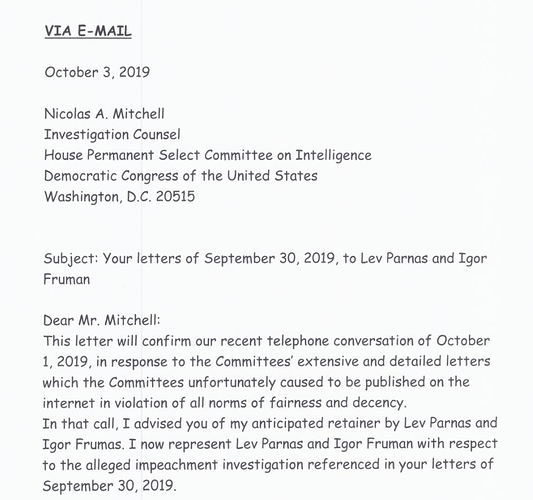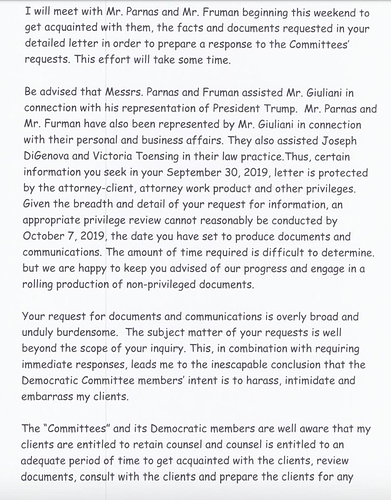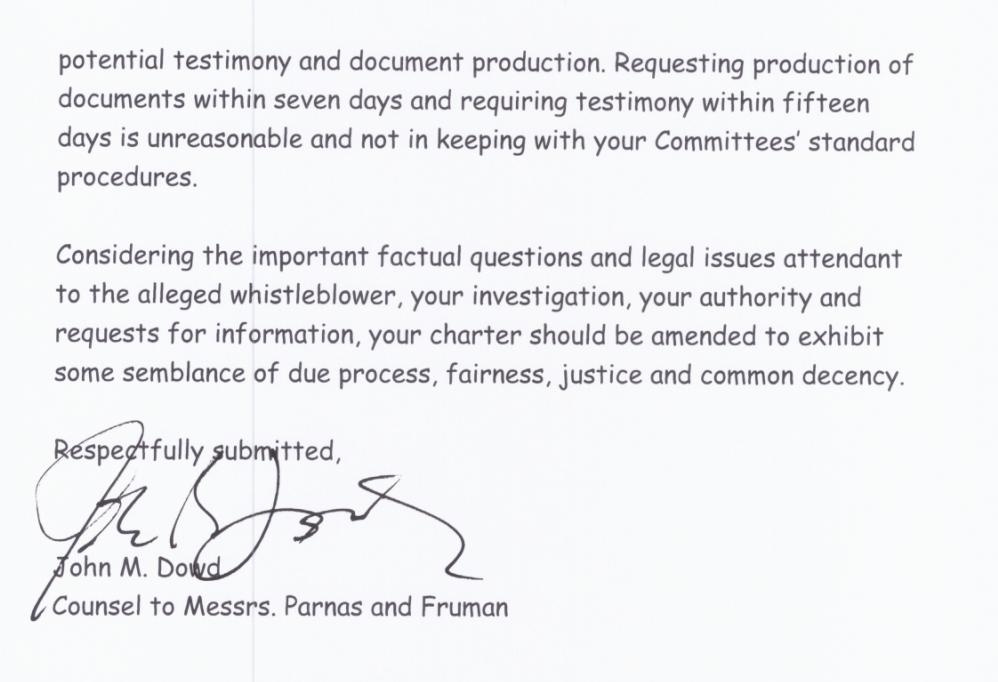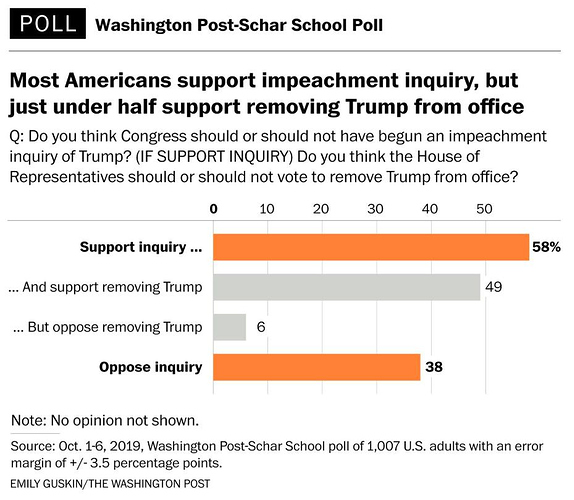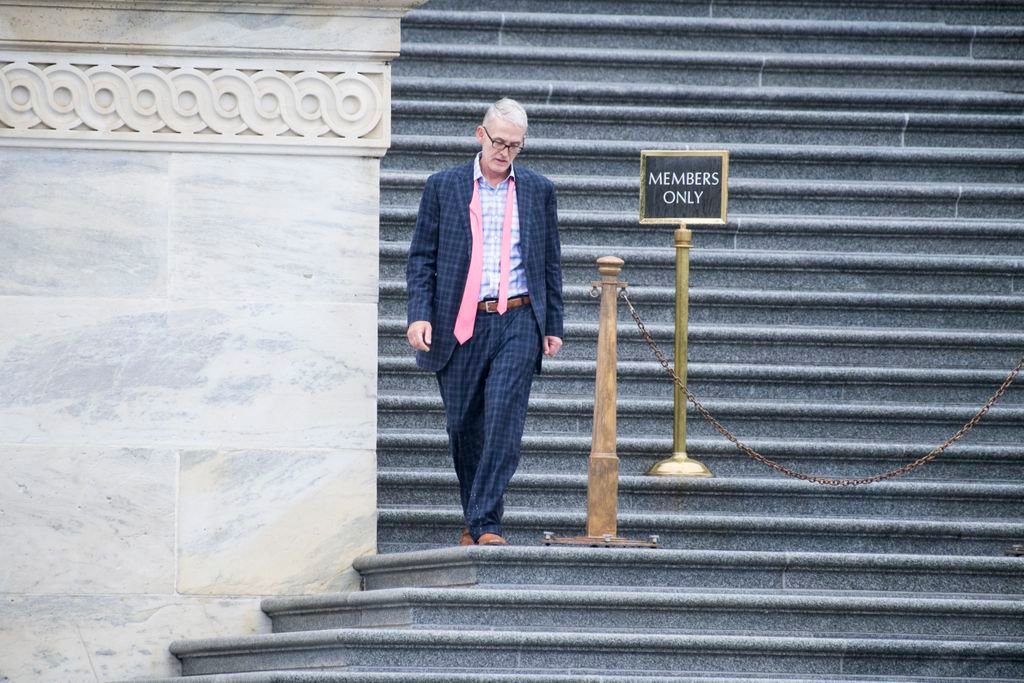Pentagon and OMB Subpoenaed in House Impeachment Inquiry
Subpoenas Demand Documents on President’s Decision to Withhold Critical Military Assistance Provided By Congress To Help Ukraine Counter Russian Aggression
Washington, D.C. (Oct. 7, 2019)—Today, Rep. Adam Schiff, the Chairman of the Permanent Select Committee on Intelligence, Rep. Elijah E. Cummings, the Chairman of the Committee on Oversight and Reform, and Rep. Eliot L. Engel, the Chairman of the Committee on Foreign Affairs, sent a letter to Department of Defense (DOD) Secretary Mark Esper and a letter to Office of Management and Budget (OMB) Acting Director Russell Vought conveying subpoenas for key documents as part of the House of Representatives’ impeachment inquiry of President Donald Trump.
“Pursuant to the House of Representatives’ impeachment inquiry, we are hereby transmitting a subpoena that compels you to produce the documents set forth in the accompanying schedule by October 15, 2019,” the Chairmen wrote.
The Committees are investigating the extent to which President Trump jeopardized national security by pressing Ukraine to interfere with our 2020 election and by withholding military assistance provided by Congress to help Ukraine counter Russian aggression, as well as any efforts to cover up these matters.
According to multiple press reports, at some point in July 2019, President Trump ordered Acting OMB Chief Mick Mulvaney to freeze the military aid to Ukraine, and Mulvaney reportedlyconveyed the President’s order “through the budget office to the Pentagon and the State Department, which were told only that the administration was looking at whether the spending was necessary.”
“The enclosed subpoena demands documents that are necessary for the Committees to examine this sequence of these events and the reasons behind the White House’s decision to withhold critical military assistance to Ukraine that was appropriated by Congress to counter Russian aggression,” the Chairmen wrote.
According to press reports, “Administration officials were instructed to tell lawmakers that the delays were part of an ‘interagency process’ but to give them no additional information.”
Officials at the Departments of State and Defense reportedly were “puzzled and alarmed” after learning about the White House’s directive. Defense Department officials reportedly “tried to make a case to the White House that the Ukraine aid was effective and should not be looked at in the same manner as other aid,” but “those arguments were ignored.” State and Defense Department officials reportedly contacted Congress to inform them of the freeze imposed by the White House.
In August 2019, Senator Ron Johnson was informed by Gordon Sondland, the U.S. Ambassador to the European Union, that if Ukraine would “get to the bottom of what happened in 2016—if President Trump has that confidence, then he’ll release the military spending.” Senator Johnson stated: “At that suggestion, I winced.” He also stated: “My reaction was: Oh, God. I don’t want to see those two things combined.”
On September 9, 2019, the Committees wrote a letter to the White House requesting documents relating to “the actual or potential suspension of military assistance to Ukraine.” The White House never responded to this request, resulting in the issuance of a subpoena last Friday.
However, two days later, on September 11, 2019, the White House released its hold on the military assistance to Ukraine.
Click here to read the letter and subpoena schedule to DOD.
Click here to read the letter and subpoena schedule to OMB.

